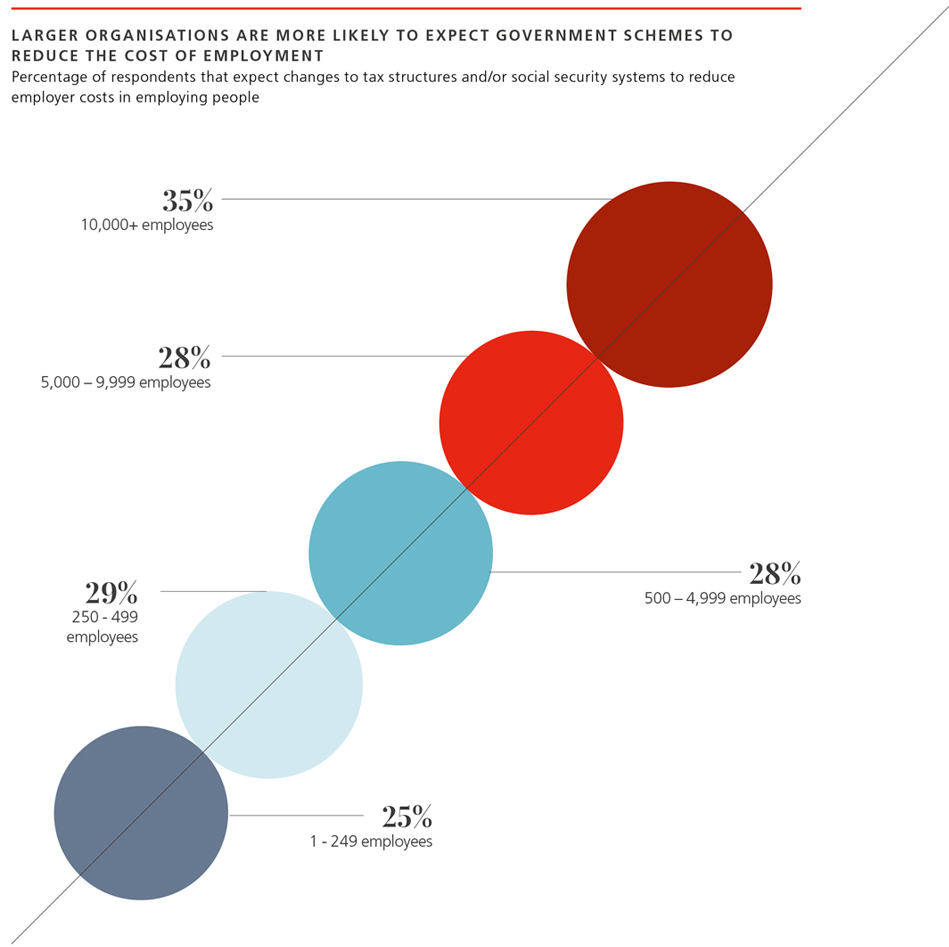
Governments of varying political hues responded with unprecedented force to COVID-19’s emergence last spring to mitigate the potentially dire consequences for workers. Few at that time would have foreseen the continued significance nearly a year later of government intervention into labour markets to safeguard jobs. An economic shock on the scale caused by the pandemic has not been seen for centuries in many parts of the world.
In the UK, for example, the last time the economy contracted by the level caused by the virus was following the Great Frost of 1709. Early on, by May 2020, governments around the world had reacted to protect workers. In many cases they extended or set up job retention schemes of unprecedented scale. Though these varied in their detail and generosity, there was immediate and widespread recognition of the need to support employment across governments of all political persuasions, from Hungary to New Zealand and Turkey to Finland.
The schemes generally either amounted to a temporary wage subsidy or a short-term work scheme subsidising the cost of hours not worked. Job retention schemes were backed up with other support to businesses to avoid mass redundancies on an extraordinary scale. Some schemes were restricted to employers suffering a decline in business. For example, in Slovakia, businesses needed to be able to show a 20 per cent drop in revenue to be eligible for support. Others such as Cyprus, Hong Kong and Italy imposed restrictions on beneficiaries making job cuts.
In addition, in many places government support has involved more generous state benefits for those losing their jobs. COVID-19 saw emergency legislation introduced in most countries to restrict the spread of the virus. Alongside curtailing many individual freedoms, this included new employment rules often aimed at addressing critical health and safety concerns.
The world we enter once the coronavirus is brought under control is often referred to as the “New Normal”. In many ways it will resemble the “old normal”. No doubt, for many, meals out with friends, evenings in a bar or café and foreign holidays will re-emerge and probably be cherished even more than before.
However, some things will inevitably be different. The pandemic will have accelerated change that was already underway as businesses adapted to the new challenges. Technological change will gather pace. Home working and online shopping were becoming more common before 2020, but the genie cannot now be put back in the bottle after their widescale adoption on a much quicker scale.
The global adoption of home working will, arguably, have the biggest long-term impact of any development. It will potentially risk creating a two-tiered workforce of those able to work from home and those who cannot. Those able to work from home have already experienced the benefits of less commuting and more family time.
Home working and video meetings will hit hard those city-centre jobs that are dependent on masses of office-based workers in need of nourishment or other services on their doorstep. Those able to work from home, at least partially, will look locally for the coffee shops and retail outlets they previously visited close to offices. This will create new jobs in the suburbs and towns. Employers and employment law will need to adapt to the New Normal.
Managing mental health will become core to health and safety obligations with more home working. Data security will also pose new challenges. Collective representation will be less straightforward where colleagues only ever encounter one another on Zoom calls, as will simple interaction between colleagues who used to meet each other informally in the corridor at work. Integrating new joiners to a team is particularly difficult if all work is done remotely.
In the longer term, it is not difficult to foresee that government intervention to safeguard against the economic and health consequences of COVID-19 will result in an increased expectation for greater government action to protect jobs and the economy. Politics has also changed a lot in recent years. Traditional left-right politics saw pro-business, low-regulation and low-tax politicians confront pro-worker, pro-state intervention politicians. In many places the political divide has fragmented into more complex divisions between populists and liberals, nationalists and internationalists.
Nonetheless, governments have reacted in similar ways, at least as far as economic support for jobs is concerned, irrespective of their politics. For governments of all types the challenges are multiple. How can it discourage employers from making job cuts? What support is appropriate for those who find themselves unemployed? How can it encourage the development of skills appropriate for the jobs of the next decades? In an increasingly competitive world coming out of the pandemic, what level of job regulation and security is appropriate? With the seismic shift to home working, what steps are needed to regulate employment? Are employment laws enacted for the old normal still relevant for the New Normal? With governments having borrowed at previously unthinkable levels, how should employers be taxed and how should income be taxed? Will governments look for international answers or retreat into domestic solutions?

Job retention schemes will have accustomed many to the state taking over responsibility for their wages. It is only a small jump to some form of universal basic income. Countries have looked at such schemes for many years. Most recently a two-year Finnish study concluded last year that those in receipt of a universal basic income were more likely to work than those in receipt of unemployment benefit, although the difference between the two groups was not great. Of more significance, was the better financial wellbeing, mental health and confidence in the future of those getting the universal basic income.
Perhaps with increased unemployment a consequence of the current crisis and the impact of technological change on jobs, the time has come for a greater acceptance of state intervention in labour markets.
For example, in May 2020 in response to COVID-19, Spain introduced a basic minimum income of €462 a month for an adult living alone. COVID-19 will lead to many changes in the world of work, but perhaps one of the most significant promises to be an increased expectation of an active state in addressing the consequences of economic shocks.



